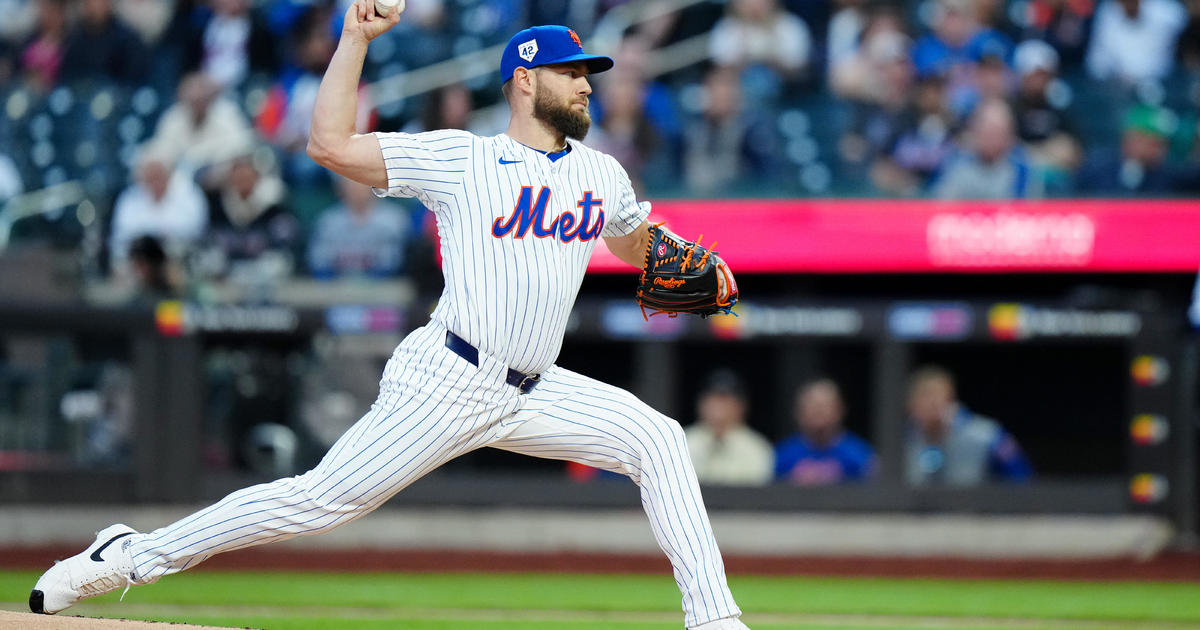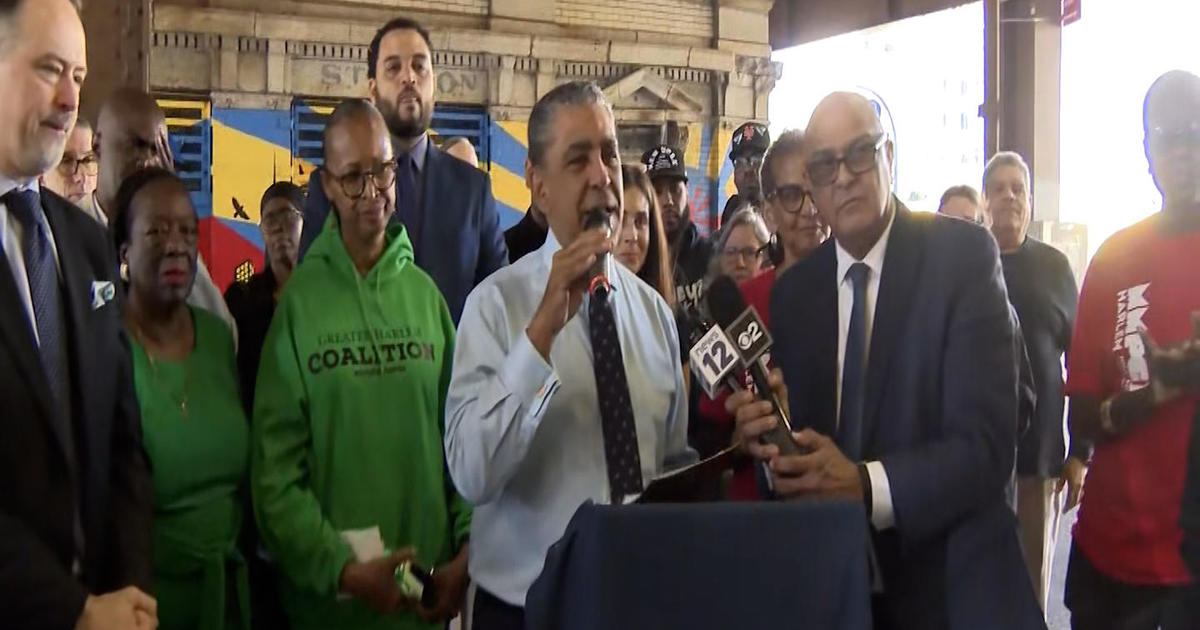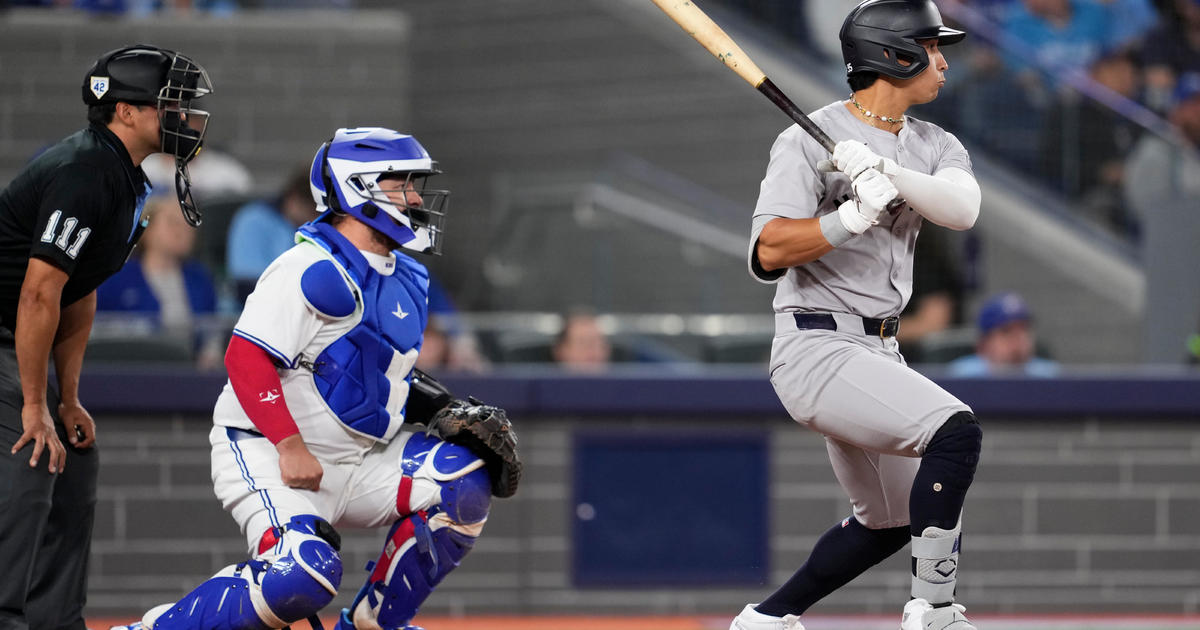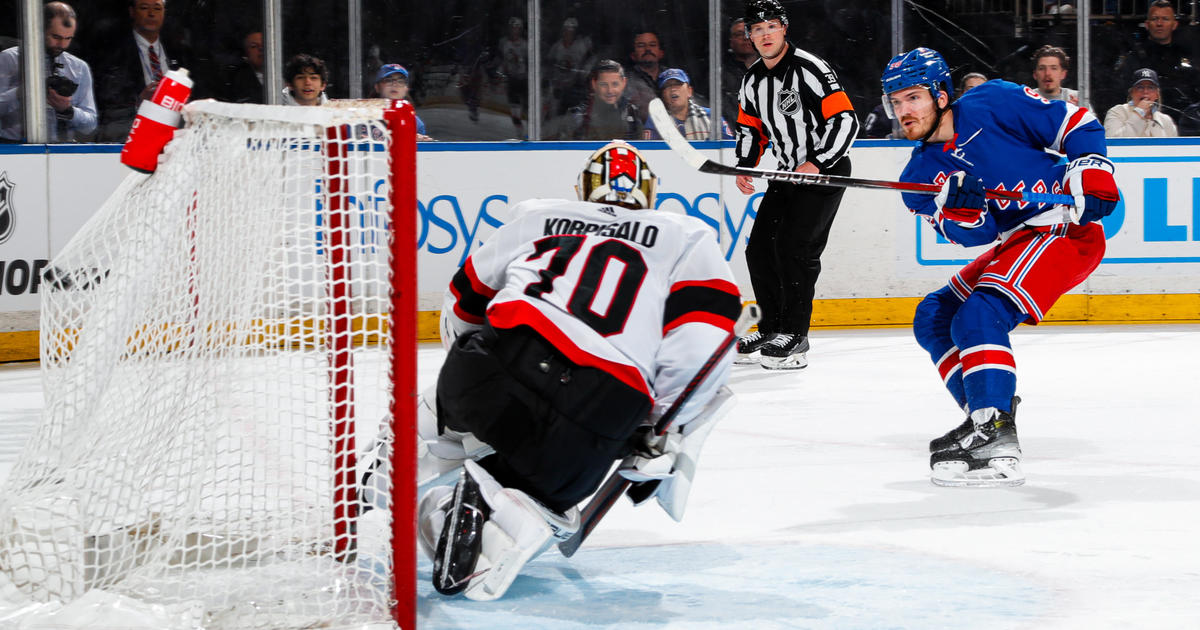Clark: MLB Players Won't Allow Deals To Be Voided For Drug Violations
NEW YORK (CBSNewYork/AP) — New baseball union head Tony Clark says players won't agree to terminating contracts as part of discipline for drug violations.
Clark took over as executive director of the Major League Baseball Players Association following Michael Weiner's death in November and expects talks on possible changes to the drug agreement to start before spring training. Commissioner Bud Selig proposed last March that drug penalties be toughened, but Weiner had said any alterations would be discussed for the 2014 season.
"I'd venture to guess that even though there are concerns on a number of levels, that we will never end up in a world where player contracts are voided as a result," Clark said Wednesday during an interview with The Associated Press at the union's office.
Clark also anticipated players will agree before the upcoming season to ban home plate collisions and to allow expanded instant replay, which also requires a deal between Major League Baseball and the umpires' union.
Since the start of the 2006 season, MLB's drug agreement has called for 50-game suspensions for a first positive test for performance-enhancing drugs, 100 games for a second and a lifetime ban for a third. Yankees third baseman Alex Rodriguez was suspended for the entire 2014 season based on a provision allowing discipline for "just cause."
Some players have agreed with Selig's call for harsher penalties, and some spoke out after shortstop Jhonny Peralta finished a 50-game suspension, left Detroit as a free agent and agreed to a $53 million, four-year contract with St. Louis.
"It pays to cheat... Thanks, owners, for encouraging PED use," Arizona pitcher Brad Ziegler tweeted in November.
"Apparently getting suspended for PED's means you get a raise. What's stopping anyone from doing it? (hashtag)weneedtomakeachange," free agent pitcher David Aardsma, who pitched for the Mets in 2013, tweeted.
"I would argue that that concern has been there before. I think it was articulated in a fashion that was perhaps different this time than last," Clark said. "We have a lot of players that are very passionate about the topic, and when you add in the social media component, players are confident and willing to offer that perspective. I think that's fantastic."
Though players are not paid their salaries while serving drug suspensions, clubs don't have the right to alter guarantee provisions for the remainder of contracts. In a statement last weekend, Rodriguez claimed his suspension was "MLB's first step toward abolishing guaranteed contracts in the 2016 bargaining round (and) instituting lifetime bans for single violations of drug policy."
Weiner said last March there had been talks among players over "whether there should be increases — whether there should be a differential penalty for intentional or unintentional users." In his decision on Rodriguez's suspension, arbitrator Fredric Horowitz referred to how he upheld a 100-game penalty for Guillermo Mota in 2012 even though he found the pitcher's positive test was caused unintentionally by the use of a cough syrup to treat a cold.
"We are looking to have discussions at some point in time prior to spring training with MLB to see if there are considerations that we collectively can make to improve the program," Clark said.
Unlike the labor contract, the Joint Drug Agreement contains provisions for an annual review by the parties.
The 41-year-old Clark, a 2001 All-Star who hit 251 home runs during 15 years in the major leagues, joined the union in 2010 as director of player relations and took on more responsibility last year as Weiner's health deteriorated because of a brain tumor.
Clark said talks had been ongoing over MLB's proposal to ban home plate collisions, which was announced last month by New York Mets general manager Sandy Alderson, chairman of the rules committee. Alderson said details must be worked out.
Management could not make the change for 2014 without the union's agreement but could impose a unilateral plan for 2015.
"I think we are closer rather than further to finding common ground," Clark said. "And my expectation here is, in a relatively short period of time is, that we can move this thing along — for '14."
Owners voted last month to approve funding for expanded video review of umpires' calls, which would include most decisions other than balls and strikes, and foul tips. Those rules also are being formulated.
"The idea hopefully is that it's in everyone's best interest to do what we're doing in replay," Clark said. "It's been a challenge to try to navigate how best we do this without disrupting the game itself. Our guys are very concerned with making sure that the game stays the game."
You May Also Be Interested In These Stories
(TM and © Copyright 2014 CBS Radio Inc. and its relevant subsidiaries. CBS RADIO and EYE Logo TM and Copyright 2014 CBS Broadcasting Inc. Used under license. All Rights Reserved. This material may not be published, broadcast, rewritten, or redistributed. The Associated Press contributed to this report.)



